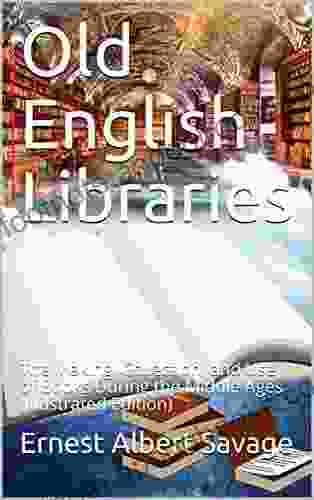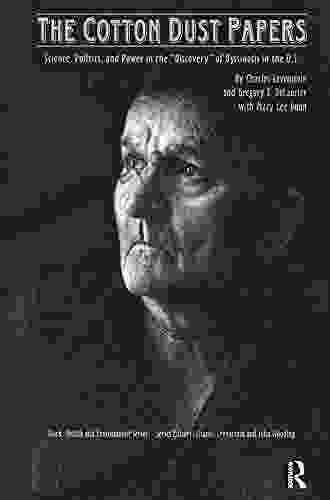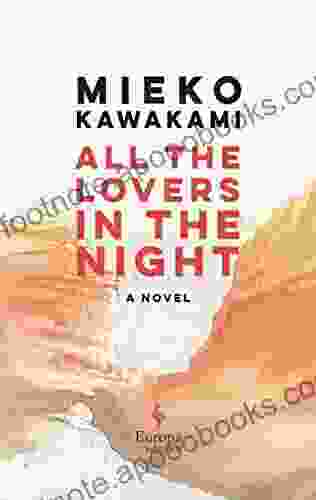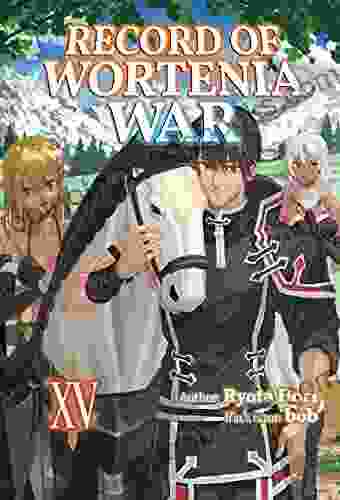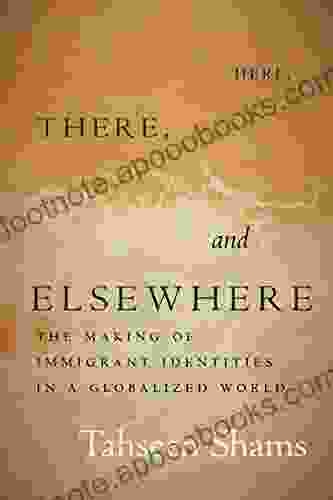Old English Libraries: The Making, Collection, and Use of Knowledge During the Middle Ages

In the tapestry of human history, the Middle Ages often evoke images of chivalry, knights, and castles. However, beneath this romantic veneer lay a vibrant and thriving intellectual landscape where knowledge and scholarship flourished in the hallowed halls of Old English libraries.
4.3 out of 5
| Language | : | English |
| File size | : | 4499 KB |
| Text-to-Speech | : | Enabled |
| Screen Reader | : | Supported |
| Enhanced typesetting | : | Enabled |
| Print length | : | 151 pages |
These libraries, far from being mere repositories of dusty tomes, were dynamic centers of learning and creativity. They served as the beating hearts of monasteries, cathedrals, and royal courts, nurturing the minds that shaped the course of medieval society.
The Origins of Old English Libraries
The roots of English libraries can be traced back to the early Anglo-Saxon period. Missionaries from Rome brought with them not only their faith but also their reverence for learning and literacy. Monasteries, established as centers of religious devotion, became the first custodians of written knowledge.
In the seventh century, Archbishop Theodore of Canterbury and Abbot Benedict Biscop played a pivotal role in establishing libraries in monasteries such as Canterbury, Jarrow, and Wearmouth-Jarrow. These institutions became renowned for their rich collections and skilled scribes who meticulously copied and illuminated manuscripts.
The Evolution of Collections
Over time, monastic libraries evolved from mere repositories of liturgical texts to vast collections encompassing a wide range of subjects. The influx of classical and patristic writings from the continent broadened the intellectual horizons of English scholars.
Theological treatises, historical chronicles, scientific works, and literary texts poured into these libraries, transforming them into veritable treasure troves of knowledge. The Canterbury Cathedral Library, for example, housed a remarkable collection of over 2,000 manuscripts by the late eleventh century.
The Use of Libraries
Old English libraries were not mere collections of books but living, breathing spaces of intellectual endeavor. Scholars, monks, and even lay patrons frequented these libraries to engage in study, research, and contemplation.
The walls of these libraries resonated with the scratching of quills on parchment as scribes painstakingly copied manuscripts. Scholars delved into the depths of knowledge, poring over texts and engaging in lively debates.
Libraries also played a vital role in the preservation of knowledge. During periods of political instability and warfare, they provided a sanctuary for precious manuscripts, safeguarding them from destruction or loss.
The Legacy of Old English Libraries
The legacy of Old English libraries extends far beyond the Middle Ages. Many of the manuscripts collected and preserved in these institutions have survived to this day, offering invaluable insights into medieval thought, society, and culture.
The works of Venerable Bede, the Anglo-Saxon Chronicle, and the Canterbury Tales are just a few examples of the literary treasures that have been preserved thanks to the existence of these libraries.
Moreover, the intellectual traditions fostered in Old English libraries laid the foundation for the development of English universities and the rise of scholasticism in the later Middle Ages.
Old English libraries were more than just repositories of knowledge. They were vital centers of intellectual and cultural life, nurturing scholarship, preserving wisdom, and shaping the course of medieval English society.
Through their collections of manuscripts, these libraries not only preserved the past but also sowed the seeds of future intellectual achievements. Their legacy continues to inspire and enrich our understanding of one of the most fascinating periods in human history.
4.3 out of 5
| Language | : | English |
| File size | : | 4499 KB |
| Text-to-Speech | : | Enabled |
| Screen Reader | : | Supported |
| Enhanced typesetting | : | Enabled |
| Print length | : | 151 pages |
Do you want to contribute by writing guest posts on this blog?
Please contact us and send us a resume of previous articles that you have written.
 Book
Book Novel
Novel Page
Page Chapter
Chapter Text
Text Story
Story Genre
Genre Reader
Reader Library
Library Paperback
Paperback E-book
E-book Magazine
Magazine Newspaper
Newspaper Paragraph
Paragraph Sentence
Sentence Bookmark
Bookmark Shelf
Shelf Glossary
Glossary Bibliography
Bibliography Foreword
Foreword Preface
Preface Synopsis
Synopsis Annotation
Annotation Footnote
Footnote Manuscript
Manuscript Scroll
Scroll Codex
Codex Tome
Tome Bestseller
Bestseller Classics
Classics Library card
Library card Narrative
Narrative Biography
Biography Autobiography
Autobiography Memoir
Memoir Reference
Reference Encyclopedia
Encyclopedia Dr Bhratri Bhushan
Dr Bhratri Bhushan Charles White
Charles White Carrie Parker
Carrie Parker Cb Samet
Cb Samet Fearghal Mcgarry
Fearghal Mcgarry Catherine Q Howe
Catherine Q Howe Dawnaya Key
Dawnaya Key Katherine Poulton
Katherine Poulton Charles J Halperin
Charles J Halperin Heather Woodhaven
Heather Woodhaven Jennifer L Knox
Jennifer L Knox Cassandra Clark
Cassandra Clark Whitney Williams
Whitney Williams Siobhan Curham
Siobhan Curham Jacob Eric Stathers
Jacob Eric Stathers Jim Help
Jim Help Leonard Cohen
Leonard Cohen Richard Woodward
Richard Woodward Joseph Kanon
Joseph Kanon Kimberly Voge
Kimberly Voge
Light bulbAdvertise smarter! Our strategic ad space ensures maximum exposure. Reserve your spot today!
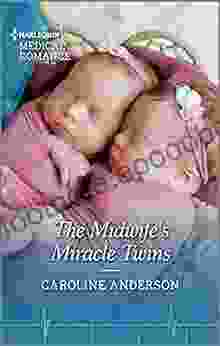
 Colt SimmonsThe Midwife Miracle Twins: An Unforgettable Journey of Hope, Resilience, and...
Colt SimmonsThe Midwife Miracle Twins: An Unforgettable Journey of Hope, Resilience, and...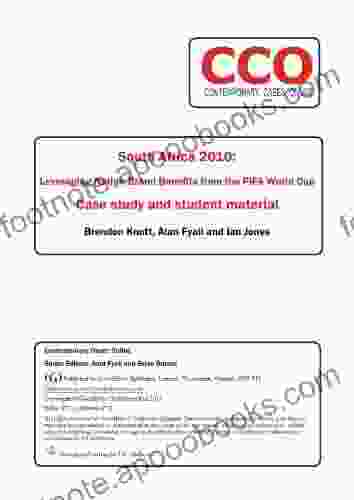
 José SaramagoLeveraging the FIFA World Cup for Nation Brand Elevation: A Comprehensive...
José SaramagoLeveraging the FIFA World Cup for Nation Brand Elevation: A Comprehensive... Robert BrowningFollow ·19.4k
Robert BrowningFollow ·19.4k Harrison BlairFollow ·13.7k
Harrison BlairFollow ·13.7k Alan TurnerFollow ·6k
Alan TurnerFollow ·6k Eli BrooksFollow ·14.3k
Eli BrooksFollow ·14.3k Logan CoxFollow ·8.5k
Logan CoxFollow ·8.5k Victor HugoFollow ·19.8k
Victor HugoFollow ·19.8k Owen SimmonsFollow ·15.4k
Owen SimmonsFollow ·15.4k Ernest ClineFollow ·15.8k
Ernest ClineFollow ·15.8k
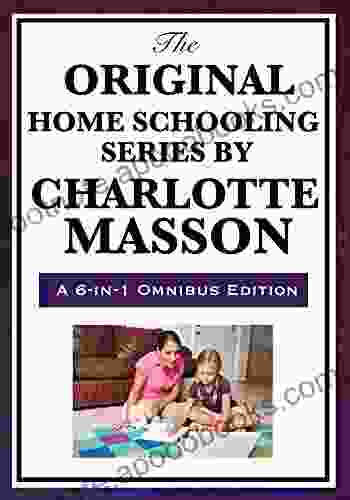
 Angelo Ward
Angelo WardThe Original Home School: A Journey of Love, Learning,...
In the annals of...

 Heath Powell
Heath PowellAfrican American Education in Slavery and Freedom: The...
The history of African...
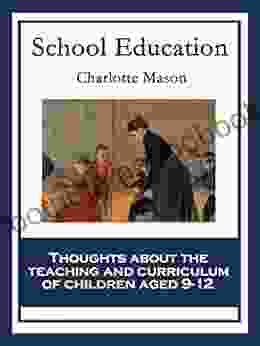
 Jamal Blair
Jamal BlairEmbrace the Wonder and Simplicity of Charlotte Mason...
Discover the...

 Cason Cox
Cason CoxUnveiling the Truth: A Mother's Courageous Journey to...
A Mother's Love Unbound: The Power of...
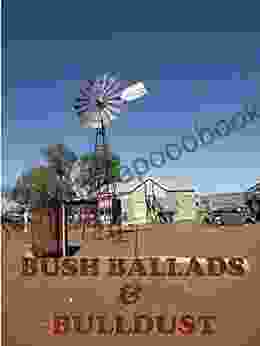
 Jamal Blair
Jamal BlairOver 100 Original Aussie Bush Ballads: A Journey Through...
Embark on a literary odyssey into the...
4.3 out of 5
| Language | : | English |
| File size | : | 4499 KB |
| Text-to-Speech | : | Enabled |
| Screen Reader | : | Supported |
| Enhanced typesetting | : | Enabled |
| Print length | : | 151 pages |


